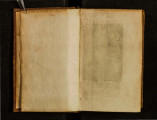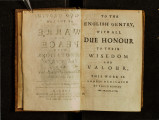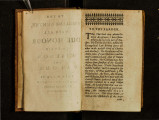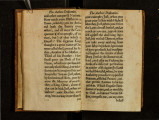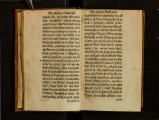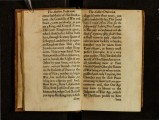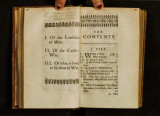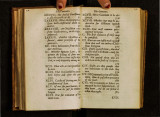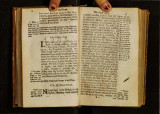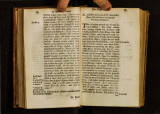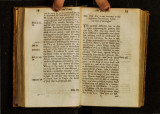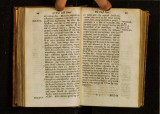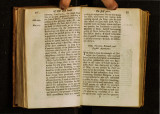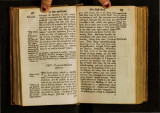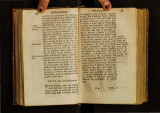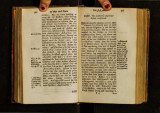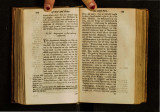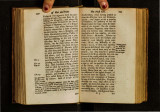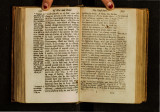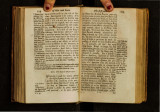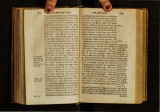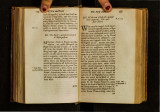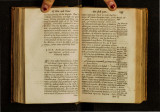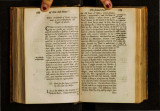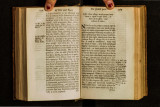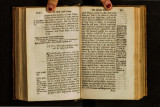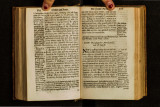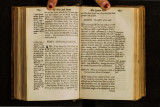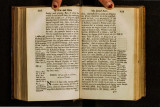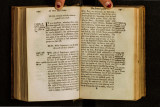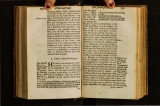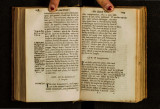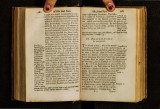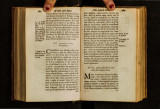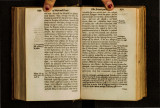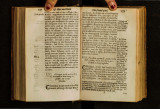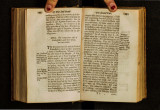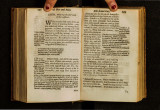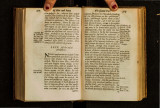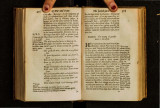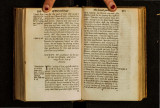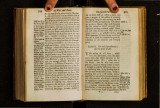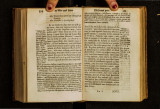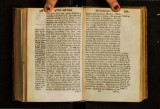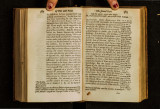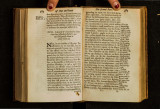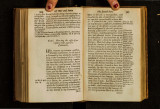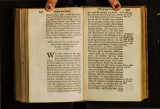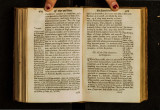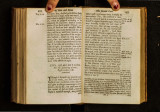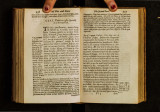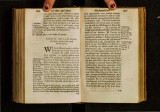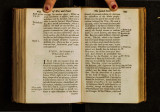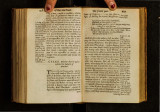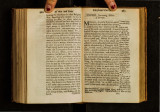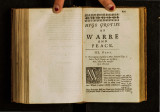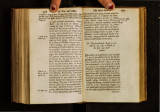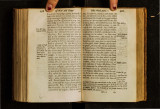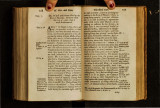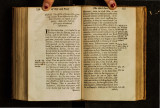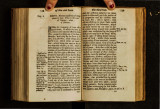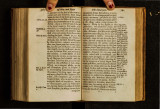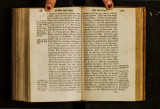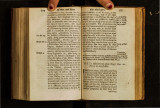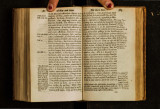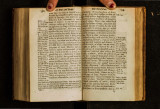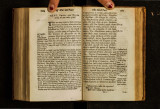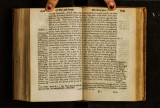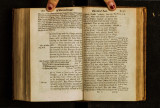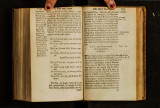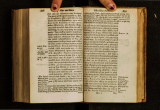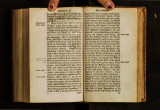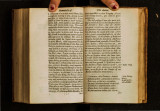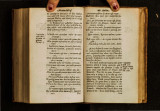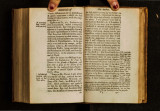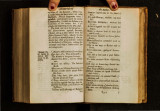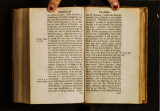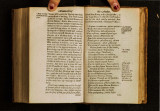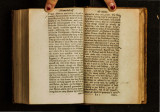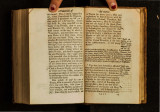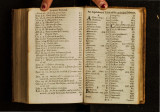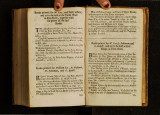| OCR Text |
Show of Wttr 111JJ Pt4tt i E 1dem dicit fhould lofe the things that are proper to & Chryfofto- them , i's in ju!l, as Lib ani us rightly !hews ?1us de hac re, in his Oration concernina the fedition of m 17. de fta::: f: h~ ruis. In eof- .Antioch. The ame Aut our approves the dem Antioche· doing of Theodojius t, who had punifhed oos h~ria olim a common fault by the interdiCtion of the !~nAltuer~t Theater,Baths, and title ofMetropolitan. r ~n . nronlOUS Philofophus ut tdlts eft Capltolinus:.& in Bp.antinos Severu~ , demto Thea· no, thermis , honore , ornamcntifq; omnibus ; fed & ipfa urp~ Perinthiis data ; vide Hcrodian. :. • C X. I. How (ong the right ofpl.t't' nifhment laftJ againft a (omrnunity t HEre occurres an eminent queA:ion , vVhether puniiliment for the fau\G of a Community may always be exaCted. S.o long as the Community lafleth , it feem~ it may : becaufe the fame body remains, the parts fucceeding one another, But,on the ather fide , is. to be noted , that fome things are attrwuted to a Community fir!l and by it felf, as, to have a treafury, Laws, and the like ~ fome things, by derivation from the particulars. For fo we ~all_ ~ Community learned , and valian~"' ~·,' ~hi)Shhath moil fuch.Oft}:lis. fortis~ ' ~rittor. 7· pol. rit or Defert; for , primarily it agrees co f3P· •3· the particulars, as having underflanding, which the Cornmunity by it felf hath not~ Thofe then being Ei~tinel, by whom Me· rit was derived ~Q the Community: , th_e Mwt The fecond Part~ Me!it it felf alfo is extinguiilied , and therefore t~e debt of puniiliment , which we have fatd cannot .confi!l without Me- 39) rit. It f;emeth to mt , faith Libanius , Orar. de fedi :. )'OU may ~tccount it a [ujficient punifhment, ~ione Antioch. that none of the offenders are now alive. And the judgment' of Arrian~s good,con-demnin. g vflexander's t re.venge upon t \o~he~c(ore the Pcrjians, thofe beina lono fince dead Juh:~n m tile who ~ad offended Gre~ce. Concernin~ pr:tif7 of Co~lth d n n.· f h h o tbntms :tttn- e enn:~~Lton o t e Br~tnc idtt by the butes to him fame Alex ander , this i~ the judament of another cau(e Cu:tius: Had thefe things bee~ done a- of.war, and , gmnft the Authors oft he treat'on tt would fallh,No wa r, t r. 1 1 . '.1' ' accounted nho JCehem l dc rueay,tJut a JU{f revm(Te · Now . ft t: · "'I • • JU ,wasc.,cr t e t ren pay J or the f ault ~f ti'Jeir fOf'e- wa~ed tor (udr fath~,-s, Phen M they were {o far from be- caurc, J}ot by tr~_rmg Milet um to Xerx es t·hat they ne- the _G•ecians ver Jra: w t h e Pl ace. L'I k c unt'o tht.s · t.s the aTg a11·1 ft the · do f roJans, nor JU ornent o 1rrian in another place a- by the Mace-bout the burnmg of Per[epolu in revenoe ~ o ni:ms a-of what the Perjians had done at A then~· ~ainfi the PerTo me Alexander feemeth to have don; 1tanfis. Food r they unwire[ r. t: 1. . pur ue not J' Y • )or tl'lU W/U no trUe revemrt old crimes fi upon thofe Perfians , who were dead h~- w.ith bte pv .. ore. That of ~gathocles is ridiculous to ndhm~nt ~f ~very man, who anfvuerc~rd the lthacenfes tbhe ~lplpren ~ co 1 · · f J' ut~etupon ' th~ ammg 0 t~e~r.damages, and t?ld ~liofe th~t it1.- ' that the Stcdtans had once fufterd JUred the po!i b more fro1~ Vly./Jes. And P!utart:h in his fierir~ of ·~1cn ook agamH Herodotus r.al"th ·: . wel-dtfe, v11w b ..... u 1t 1s net ~ "'' pro . a~le ' th~ ~orinthiaJ?S 'IJI{~uid revenac ::.ir~J, u~tt·, . . the m JUry recetved from the s · ' "'r ter three . · ·.. · . amran_s, a_- gencratzom .Nor ts 1~ a fuffi c.icnt dcfeulc |




